‘This is the house of God’: Russian Orthodox church near Kyiv bombed by Russian forces
Kim Sengupta talks to residents in Makariv, just 30 miles from the Ukrainian capital, after it was targeted by Russian forces

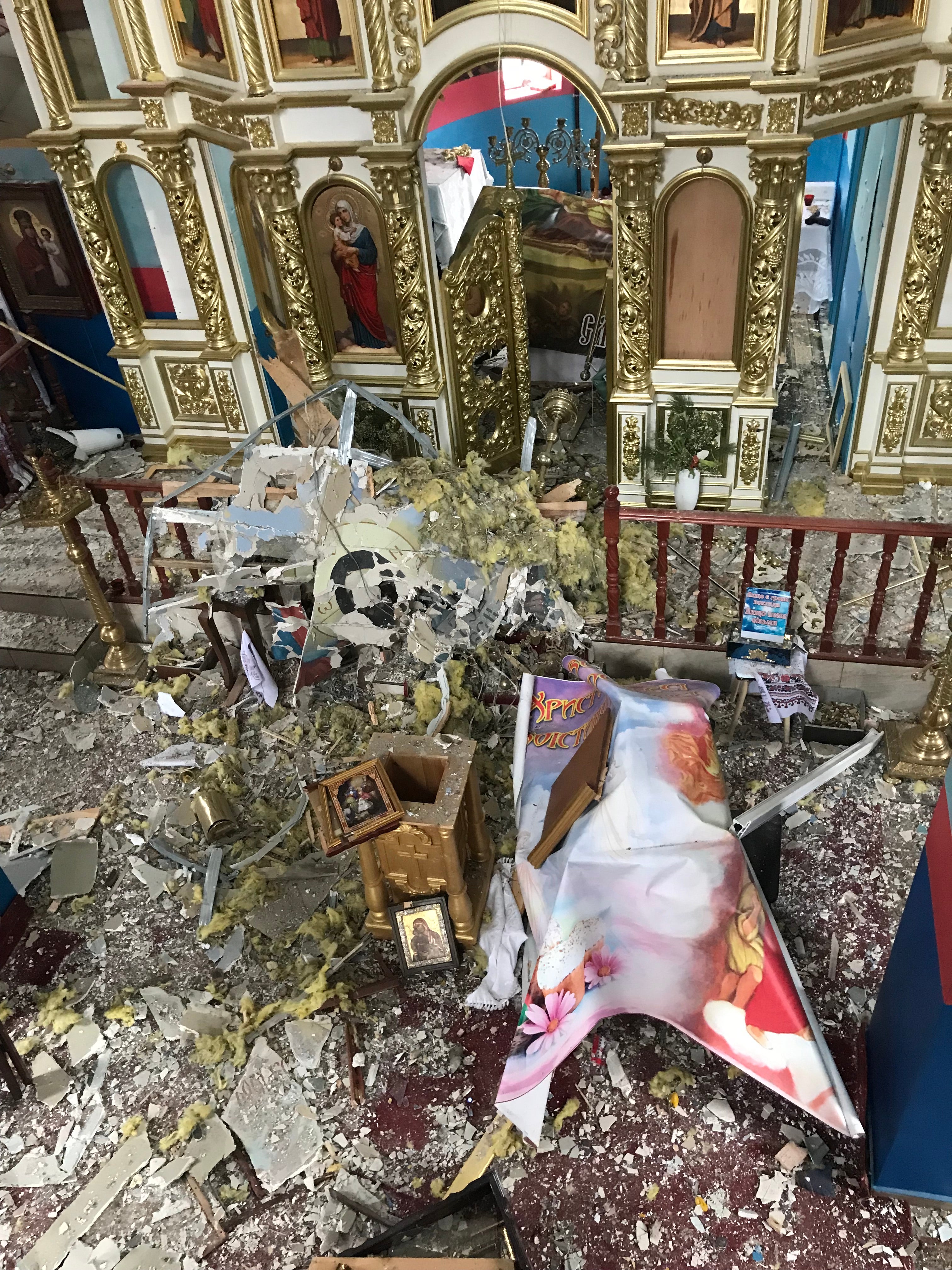
Your support helps us to tell the story
From reproductive rights to climate change to Big Tech, The Independent is on the ground when the story is developing. Whether it's investigating the financials of Elon Musk's pro-Trump PAC or producing our latest documentary, 'The A Word', which shines a light on the American women fighting for reproductive rights, we know how important it is to parse out the facts from the messaging.
At such a critical moment in US history, we need reporters on the ground. Your donation allows us to keep sending journalists to speak to both sides of the story.
The Independent is trusted by Americans across the entire political spectrum. And unlike many other quality news outlets, we choose not to lock Americans out of our reporting and analysis with paywalls. We believe quality journalism should be available to everyone, paid for by those who can afford it.
Your support makes all the difference.Parts of the altar are shattered; the nave is left charred by the blaze; bits of the cupola lie on a floor of glass and rubble, along with the icons of saints and burnt copies of scriptures; the gallery hangs precariously, close to collapse.
“This is the house of God; this is where people came to pray, seek peace in their minds in this time of trouble, a place of safety for our community, and now this,” sighs Father Roman, spreading his hands.
“We have had so many attacks in this area in the last weeks... so many people killed, wounded... families fleeing from their homes. We knew that the bombing would continue, but we did not think that they would hit a church.”
Father Roman was at the back of St Michael’s Church when missiles began to land three days ago, with deafening noise, destroying houses, incinerating cars, gouging out deep holes in the road, and starting a fire by hitting a gas installation, which continues to burn.
“I heard the missile coming in this direction – the sound of whistling, rushing wind you get from a grad [multiple rocket launcher]. I threw myself onto the ground and covered my head, and then the blast [happened], and a lot of earth fell on top of me,” he recounts.
“When the bombing ended I started looking around at what had happened; I was shocked and I was very sad at the damage. But we are very glad that no one was hurt or killed this time, that’s the main thing.”
There have been many deaths and injuries in Makariv, 32 miles west of Kyiv, since the invasion began, when the town became a focus of fierce fighting between Ukrainian forces and Russians trying seize the approach routes into the capital.
Around 15 people died when an industrial bakery was shelled, while another dozen, wounded, were freed from under the fallen building. A video has emerged of a Russian armoured carrier opening fire and blowing up a car with an elderly couple inside. A kindergarten, cultural centres and medical facilities were hit, along with more obvious targets like government offices and police stations.
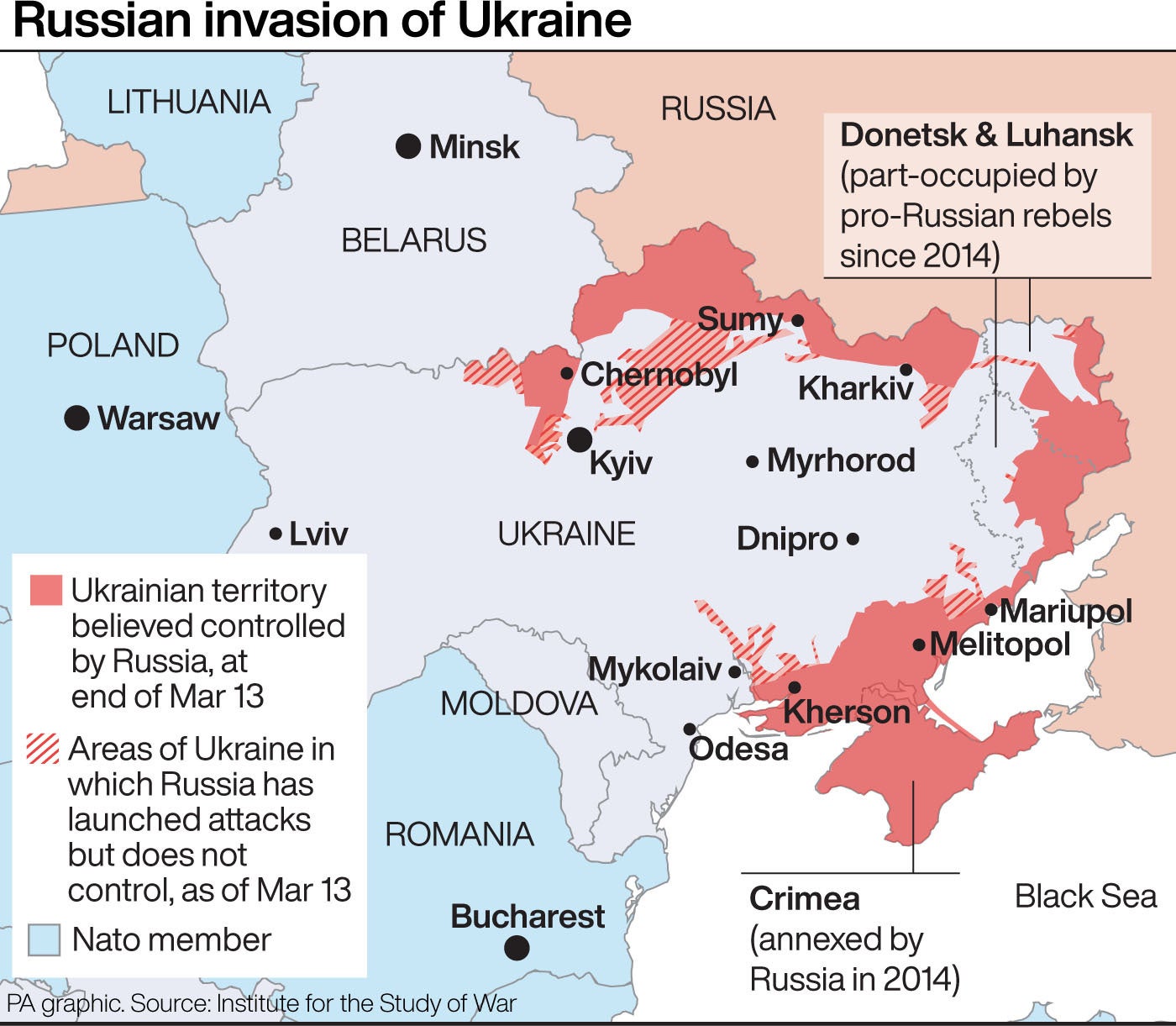
Makariv has been the scene of one of the few battles near the capital in which warplanes belonging to both sides have been in regular action. Fast jets and helicopter gunships were in the skies on Sunday, leaving plumes of flames, black smoke, and dull, thudding sounds in their wake.
Districts have changed hands repeatedly between the two sides. One, Byshiv, appears to be almost empty of people. Another was in the hands of the Russians last week before they were driven out by the Ukrainians. It is not entirely clear who exactly remains in control of the empty streets flanked by wrecked homes.
A group of Ukrainian soldiers are crouching at a side road. What are they doing? “Waiting,” comes the response. For anything in particular? “Russians, if they make the mistake of coming up this road again. They might, they don’t seem to learn from their mistakes,” says a sergeant.
“There was an old lady who lived in that house which has been bombed,” says Father Roman, pointing at the shell of a building. “Her family went to look for her, of course she had not lived... we do not know why the house was bombed. She used to come to this church sometimes for services.”
St Michael’s is a Russian, not a Ukrainian, Orthodox church – a distinction that has become important since the two branches formally split amid the political tensions between the two countries, with the Ukrainian branch receiving “tomos”, the decree of autocephaly (independence), from the Patriarch of Constantinople.
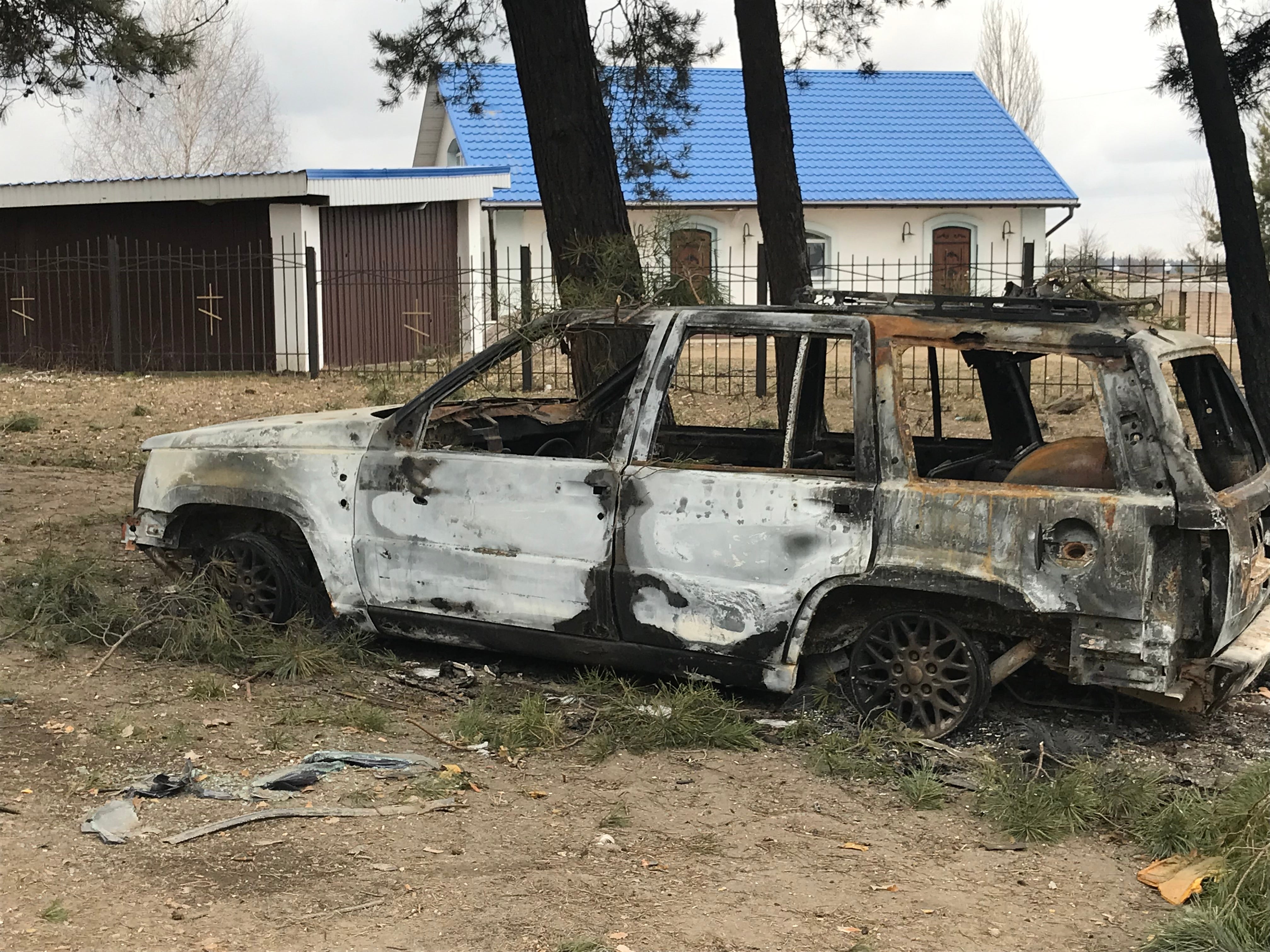
Why would Russian forces bomb a Russian Orthodox church, I ask Father Roman.
“No one, on either side, should bomb any churches, or hospitals, or schools. But people do some very stupid things during a war, make mistakes, and ordinary people suffer,” he says.
Father Roman has overseen the renovation of St Michael’s through donations since arriving there eight years ago, hiring craftsmen and personally supervising the work. He intends to stay on at his small rectory next to the church, despite the risks.
“Most of the families here have left, but there are still some people here and they see me as someone who can provide advice, speak to officials and things like that. I can’t let them down,” he says as he prepares to take his pet alsatian dog for a walk.
Russia wants to isolate us; we must keep ourselves open to the outside world
“The dog’s name is Dick. He is a gift from some friends. He is not really a guard dog, which I think he was meant to be, but he has a good heart and good nature, and it’s nice to have a companion.”
Zina and George Shevko, living at the edge of the district, were relieved to hear that Father Roman was all right. “We heard that he may have been hurt or even have died. The church looks badly damaged... people thought the worst,” says Ms Shevko.
“People don’t go out much now because of the security situation, and so it is not easy to know what is going on. We hear the rockets and the shootings close every night; there are planes and helicopters and explosions. This is not a safe area.”

Ms Shevko, a chef who used to cater at corporate events before the war, and George, who organised conferences for the sale of musical instruments, moved to the Makariv area six years ago. Most of their neighbours have now left, and they are keeping an eye on their properties, as well as housing their pets – a parrot, a cat and a rat.
Mr Shevko, who had the distinction of being one of the first officially recognised DJs in the Soviet Union – getting his certificate in the 1970s – is part of a neighbourhood council with a dwindling membership.
“This is our home and we are going to stay as long as we can. We all feel very upset about what is happening to our country and we need to defend it,” he says.
“I remember as a young DJ I used to play at clubs in the resorts in Crimea, with everyone mixing together. Now Crimea has gone, parts of the Donbas are occupied, and we have an invasion. Russia wants to isolate us; we must keep ourselves open to the outside world.”
Mr Shevko, an educated, erudite man, is keen to discuss what is going on in Afghanistan, Iraq, Somalia and Sudan. The Russian public, he maintains, are denied true information from abroad, and are being totally misinformed about what is going on in Ukraine.
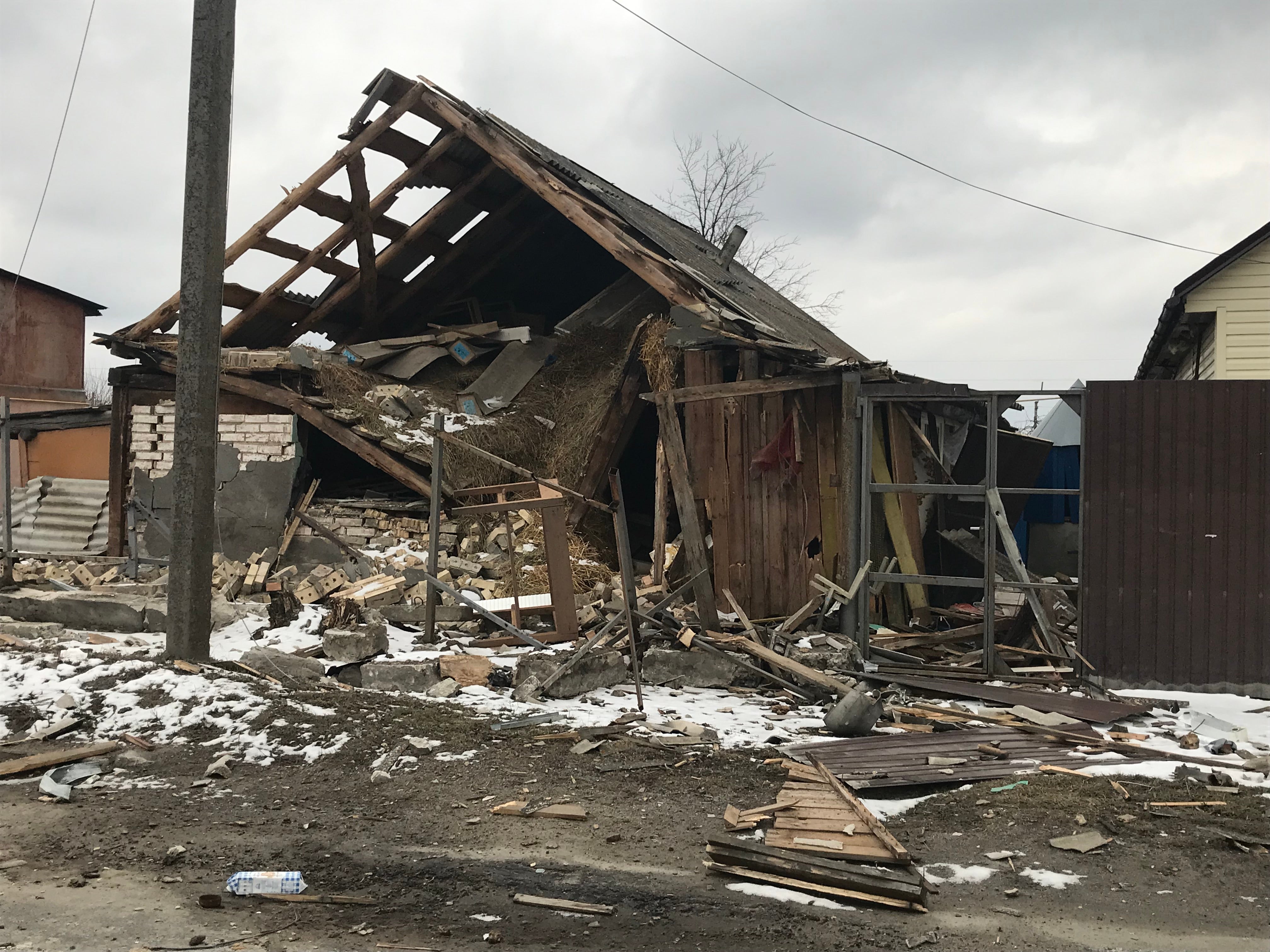
Ms Shevko’s sister is married to a Russian and they live in Moscow. One of their sons is in the police force, the other in the army.
“She believes, my sister, what they are told by the Russian media totally. She is convinced that this ‘special operation’ is to protect us from nationalists; she suggested that we should take a humanitarian corridor out to Russia,” says Ms Shevko. “I have decided now there is no point in trying to tell her what’s really going on; she simply won’t listen.”
There is a distinct possibility that Ms Shevko’s soldier nephew may end up being deployed in Ukraine. “If that happens, perhaps he and others like him will see for themselves what’s going on, and not take part in senseless killings; that’s what we can hope for,” says George.
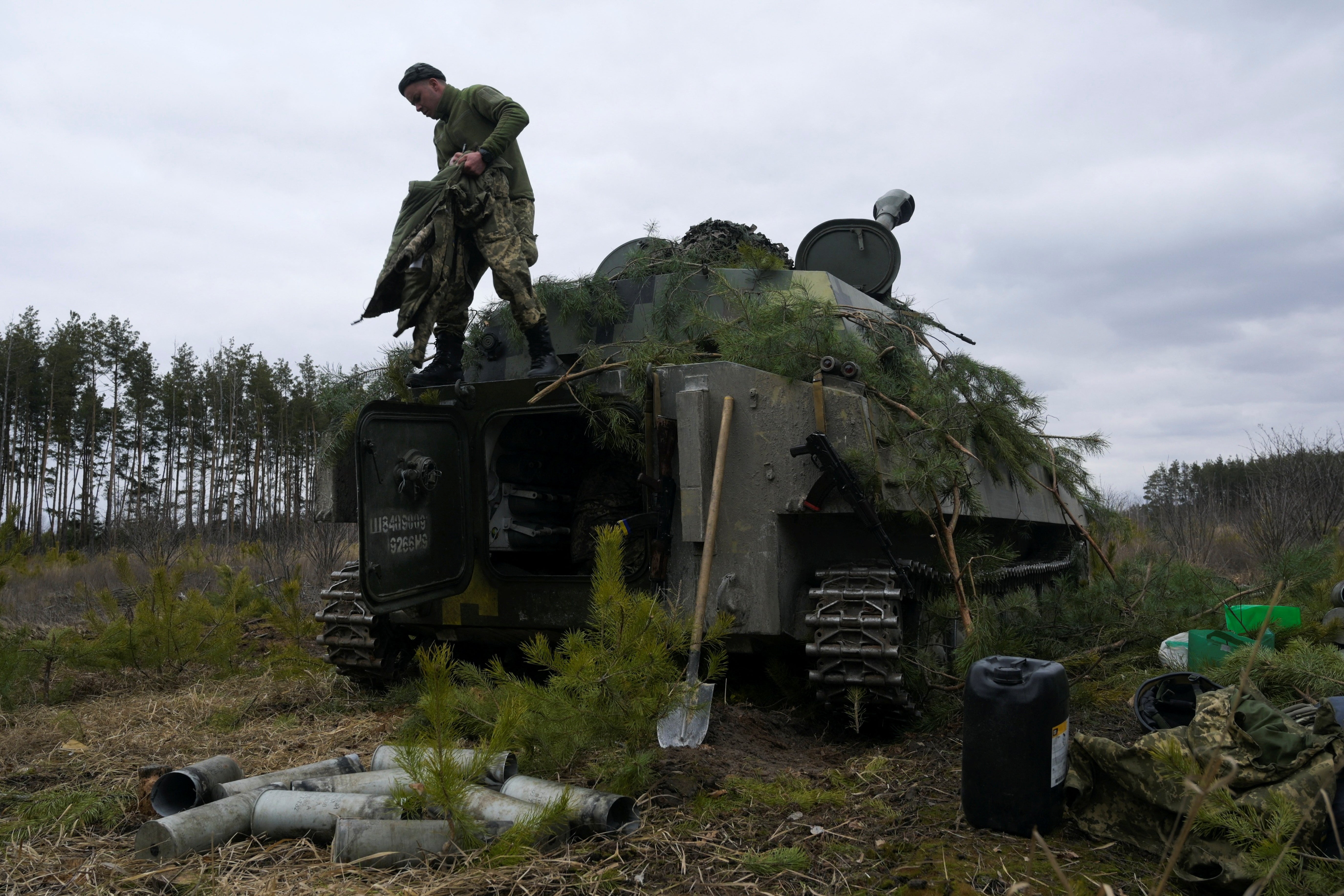
The streets are deserted near Byshiv, with repeated shelling in the background the only noise echoing among the abandoned homes.
An elderly couple are being helped into a car by their grandson. “They didn’t want to leave, I had to spend a long time talking to them,” says the young man.
“The family has been sleepless with worry for a long time and I’ve come to take them away. They keep saying, ‘God will protect us.’ I had to persuade them that we need to protect ourselves as well with what’s going on.”
Join our commenting forum
Join thought-provoking conversations, follow other Independent readers and see their replies
Comments